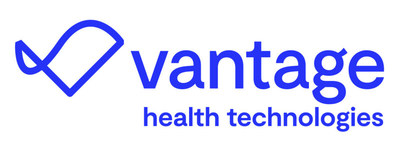Vantage Health Technologies, part of the South Africa-headquartered BroadReach Group, is taking its groundbreaking African artificial intelligence (AI) solutions to the US to enhance access to quality cancer care.
Based out of Cape Town, Vantage has been working in Africa over the past 10 years implementing AI-driven solutions to solve some of the world’s toughest healthcare challenges including scarce resources, overburdened healthcare systems and lack of access to affordable, quality healthcare.
“The data-driven, AI-powered solutions help to consolidate disparate data sources and guide healthcare providers and programs with the next best actions to address gaps. This allows teams to focus on priority patients and gaps in treatment and move scarce resources to where the biggest impact is needed.
Vantage has proven to be successful in the management of population health programs through targeted interventions. For example, a doctor working in an HIV clinic no longer has to interpret complex data and analytics and is, instead, given recommendations – ‘next-best-action’ – on what to do next so that they are improving health outcomes and effective use of scarce resources,” says Ruan Viljoen, Chief Technology Officer at Vantage.
In the same way, the US is now seeing the benefit of the platform in cancer care. Vantage’s SocialHealth360 solution is being used by oncology providers to ensure that the social determinants of health affecting many vulnerable patients such as transport, food security and living conditions are addressed, enabling patients to access and stay on treatment.
Dr. John Sargent, co-founder of BroadReach Group, says: “An example of impact through collaboration is using our experience and learnings in Africa addressing health inequity and applying them to promote health equity in cancer care in the US.
Our teams work across geographies, and this collaboration has shown that we can more effectively and rapidly improve patient care because of this experience.
Although every geography and market has its differences, many of the same core principles, critical lessons learned, and approaches apply, allowing us to rapidly adapt and implement solutions that have a real impact for populations in need while ensuring that the health system is using its resources in the most impactful way.”
Sargent further explains: “Applying healthcare lessons learnt in one country can have a profound global impact through collaboration.
By sharing best practices, innovations, and research findings, countries can collectively address common health challenges more effectively. Collaborative efforts enable the adaptation of successful strategies to different contexts, promoting universal health improvements and accelerating progress towards global health goals.
This exchange of knowledge fosters a more interconnected and resilient global healthcare community, where advancements in one region benefit all.”

